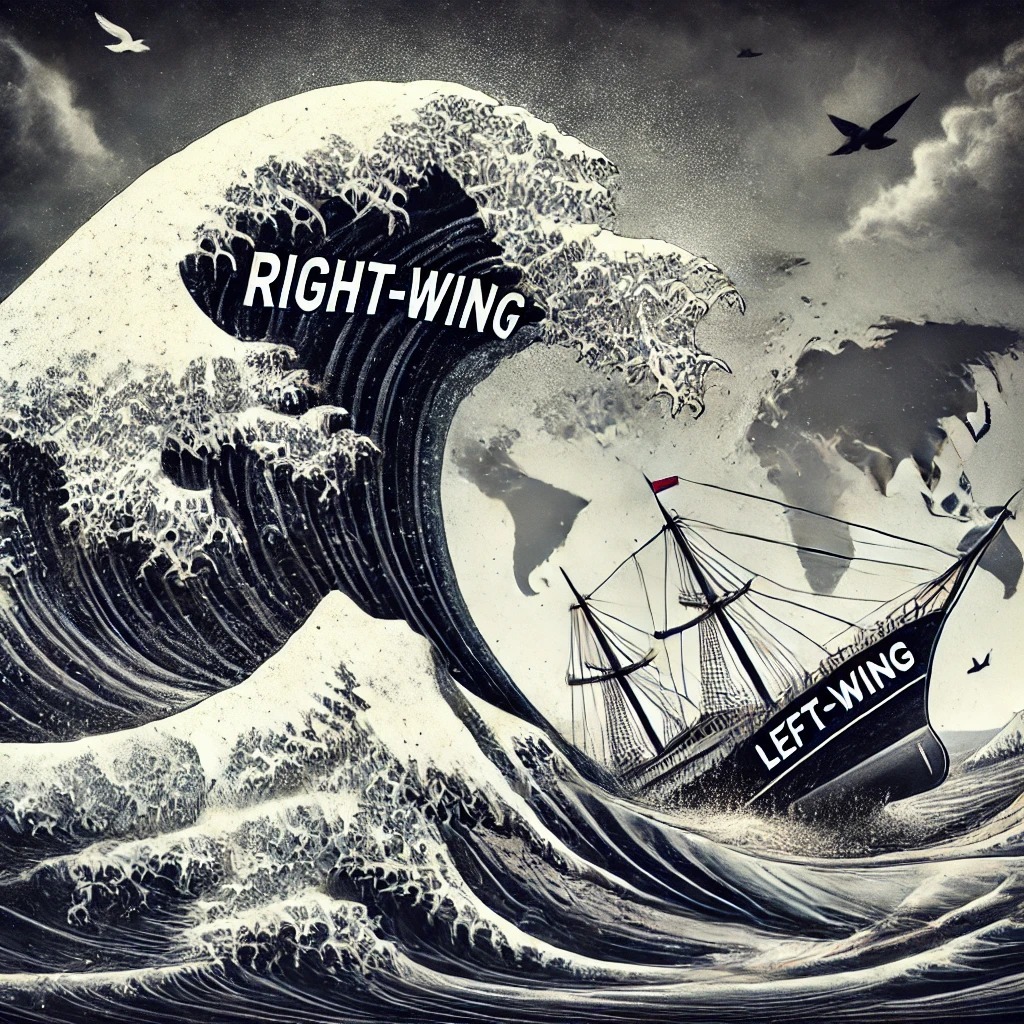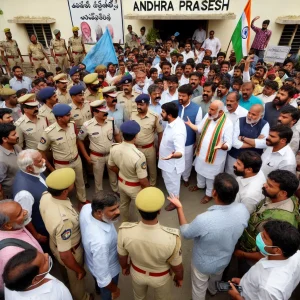
The global rise of right-wing parties has become a defining characteristic of contemporary politics, with figures like Javier Milei in Argentina, Donald Trump in the United States, and the Alternative for Germany (AfD) gaining traction. This phenomenon is not merely a regional issue but a worldwide trend that signals a significant shift in public sentiment. As traditional leftist parties struggle to maintain relevance, the reasons behind their decline and the ascent of the right warrant critical examination.
Javier Milei’s recent election as president of Argentina epitomizes this shift. His radical libertarian agenda, which includes proposals to dismantle the central bank and dollarize the economy, resonates with voters disillusioned by economic instability and inflation. Milei’s rise is emblematic of a broader trend where right-wing populists exploit economic grievances to garner support. Similarly, in El Salvador, President Nayib Bukele has leveraged tough-on-crime rhetoric and anti-establishment sentiments to consolidate power, appealing to citizens frustrated with traditional political elites.
In Europe, the AfD has emerged as a formidable force, capitalizing on fears surrounding immigration and national identity. The party’s growing influence reflects a broader European trend where nationalist and far-right parties are gaining ground in countries like Italy, France, and Sweden. Marine Le Pen’s National Rally has consistently performed well in recent elections, while Giorgia Meloni’s government in Italy showcases how far-right parties can successfully navigate mainstream politics. This rise is often fueled by public discontent with established parties’ handling of immigration crises and economic challenges.
Despite these developments, leftist parties have struggled to counter the momentum of right-wing movements. One key factor contributing to their decline is an apparent unwillingness to adapt their messaging and strategies to address the concerns of everyday citizens. Many leftist parties have relied on fear-mongering tactics, framing right-wing parties as threats to democracy without offering compelling alternatives or solutions to pressing issues. This approach often alienates potential supporters who seek tangible change rather than abstract warnings about authoritarianism.
Moreover, leftist parties have frequently failed to connect with voters on issues that matter most to them—such as economic stability, job security, and national identity. In an era marked by rapid globalization and economic uncertainty, many citizens feel left behind by traditional political establishments. Right-wing parties have capitalized on this sentiment by presenting themselves as champions of the “common people,” promising to restore national pride and economic security.
The rise of right-wing populism also highlights a growing distrust in established institutions. Many voters perceive mainstream political parties as out of touch with their realities, leading them to seek alternatives that promise radical change. This trend is evident not only in Latin America but also in various European nations where previously fringe parties have gained significant electoral support.
As we look ahead, the implications of this shift are profound for global political dynamics. The ascendance of right-wing parties poses challenges to liberal democratic values and raises questions about governance and social cohesion. The potential for increased polarization within societies is significant, as right-wing movements often thrive on division and scapegoating marginalized groups.
In conclusion, the rise of right-wing parties globally reflects deep-seated issues within contemporary politics that demand urgent attention from traditional leftist movements. To effectively combat this trend, leftist parties must evolve their strategies, engage with voters’ concerns authentically, and offer viable solutions that resonate with the electorate’s aspirations for a better future. As the political landscape continues to shift, understanding these dynamics will be crucial for navigating an increasingly complex global environment. The question remains: can traditional parties adapt in time to reclaim their relevance, or will they continue to cede ground to a resurgent right?





